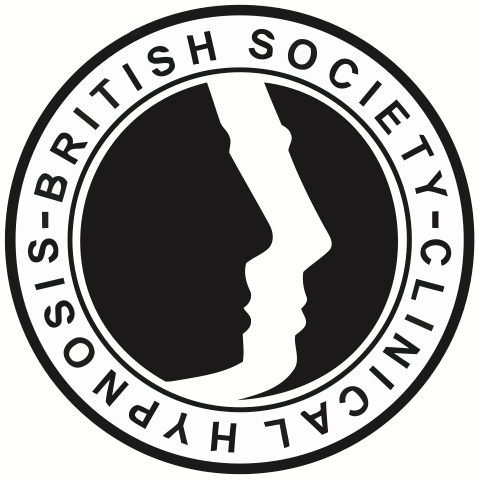Hypnosis is a genuine psychological therapy process once misunderstood but thanks to modern science, fast becoming mainstream.
Hypnotherapy is a wide field. It has branches and sub-branches, defined by a variety of applications and techniques used for both physical and psychological conditions. Here I share 8 types of hypnosis and their uses (bar one) in professional therapy.
The word Hypnosis comes from the Greek HYPNOS, meaning sleep. In Greek mythology Hypnos had the power of hypnokinesis (Hypno=sleep, kinesis=movement or motion) that enabled him to induce sleep, induce visions and manipulate dreams.
However, contrary to popular belief, hypnotherapy does not induce a state of sleep, that is absolutely not the intention, but rather to induce a state of deep relaxation and focused concentration which is the ideal state in which to create positive changes in the way you think, feel and behave. Break bad habits, create new ones, move on from traumatic events, take control of pain, improve memory, eradicate fears and phobias and anything else you want to change, tweak, remove or improve.
Hypnosis is similar to meditation in that they are both trance-like states that result in similar brain wave patterns, but instead of trying to meditate on your own, a clinical hypnotherapist will guide you there seamlessly and effortlessly.
Here are the 8 types of Hypnosis:
- Stage hypnosis
Stage hypnosis is a comedy act performed in front of an audience for the purposes of entertainment and amusement. In times gone by, it was performed in front of audiences to demonstrate and impress people with the hypnotists “magical” powers of persuasion.
A stage hypnotist uses a series of “suggestibility tests” in order to choose willing participants, selecting only the most receptive (and game for a laugh) individuals who don’t mind looking a little silly on stage. The reason for this is that stage hypnotists have to be able to work together with their chosen volunteers in order to put on a good show.
It’s great fun. But that’s what it is… it’s a bit of fun.
- Clinical Hypnotherapy
Clinical hypnotherapy as the name suggests, is the clinical use of hypnosis with a therapeutic endpoint using advanced methods of hypnotic techniques to treat a variety of medical and psychological problems. Clinical hypnotherapists must be well trained, hold recognised qualifications, registered with a governing body and fully insured.
- Ericksonian Hypnosis
Ericksonian Hypnosis is so named after Milton H. Erickson, the 20th century psychiatrist and psychologist who specialised in hypnosis and family therapy. He was the founder of the American Society for Clinical Hypnosis and is referred to as “The father of modern Hypnotherapy”.
This type of hypnosis uses metaphors, storytelling, and indirect suggestion rather than direct suggestion or commands. The theory behind Ericksonian hypnosis is that clients are less likely to resist indirect suggestions, helping them to absorb and internalise positive suggestion for change. Ericksonian hypnosis relies on the unconscious mind and offers a relaxed, organic approach to encourage change in the way you think, feel and behave.
- Solution Focused Hypnotherapy
This type of hypnotherapy focuses on your current situation, where you are today and the thing (or things) you want to change in yourself or in your life, moving forward. So rather than digging up the past and everything that led to where you find yourself today, this approach uses a powerful combination of psychotherapy and hypnosis, helping clients make the necessary changes in the present day and in a relatively short period of time.
- Cognitive-Behavioural Hypnotherapy (CBH)
CBH is the use of Cognitive-Behavioural Therapy (CBT) alongside hypnotherapy to create positive change in your thoughts, feelings or behaviour. It is similar to other types of hypnosis, however CBH uses different psychological tools such as imagination and conceptualisation as well as suggestion to help you understand the issues or challenges you’re dealing with.
- Neuro-Linguistic Programming (NLP)
Neuro-linguistic programming and hypnotherapy share many similarities, consequently some NLP techniques are used in clinical hypnosis. In short, NLP explores the relationship between your senses and the way you process language and uses this as a way to encourage positive change in an individual.
- Regression hypnotherapy
Regression hypnotherapy is when an experienced clinical hypnotherapist guides you back in time to a past event, the goal is to uncover the reason an issue or problem affects you in the present. Clients are guided in a safe way, through past memories in order to analyse the events and gain an understanding of how (if at all) the past influences their current state. Regression therapy is considered a very delicate and intrusive technique, and it is often used as a last resort as some past events can be traumatic and painful to revisit. Past-life regression is a sub-branch of regression therapy.
- Self-Hypnosis
Self-hypnosis involves putting yourself into a relaxed, trance-like state. You would normally begin with deep controlled breathing and then relax your body from the top of your head to the tips of your toes. Once you are deeply relaxed, your mind is more open to suggestion, you can either let your mind wander and see where it takes you, or you can introduce pre-recorded audio recordings via an app, a professional recording or a recording you have done yourself. Remember that hypnosis is much like meditation in that they are both trance states that result in similar brain wave patterns, an ideal state to facilitate positive change.
So there you have it. 8 types of hypnosis.
For more information or to schedule an appointment with Gail, please feel free to get in touch HERE.
In the meantime, here is an insightful and super interesting link of a study conducted by Dr David Spiegel at Stanford University looking into the science behind hypnosis:









2 thoughts on “8 types of Hypnosis”
Fascinating overview of the different types of hypnosis! It’s amazing how diverse and effective these techniques can be in promoting mental well-being. Thanks for shedding light on this intriguing subject
Thank you so much. Positive press focusing on mental health and well-being, creates an opportunity to educate the public as well as helping to encourage those who seek help, to reach out. Best wishes, Gail